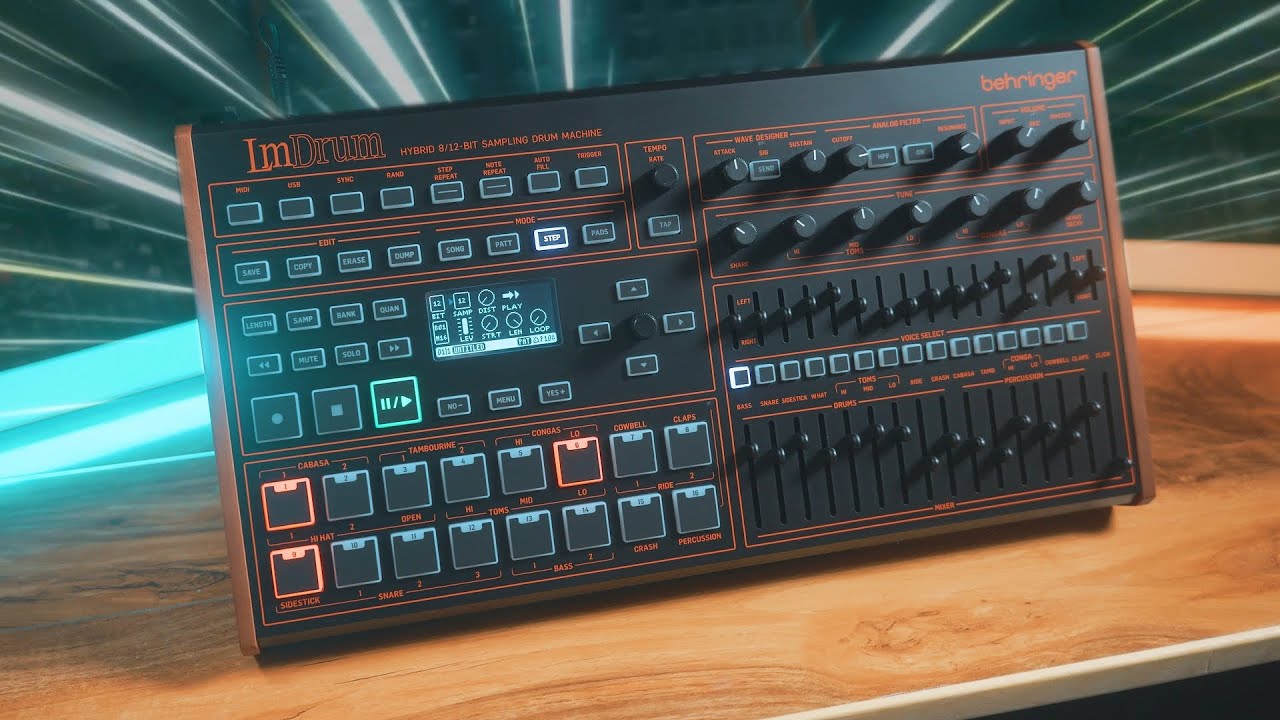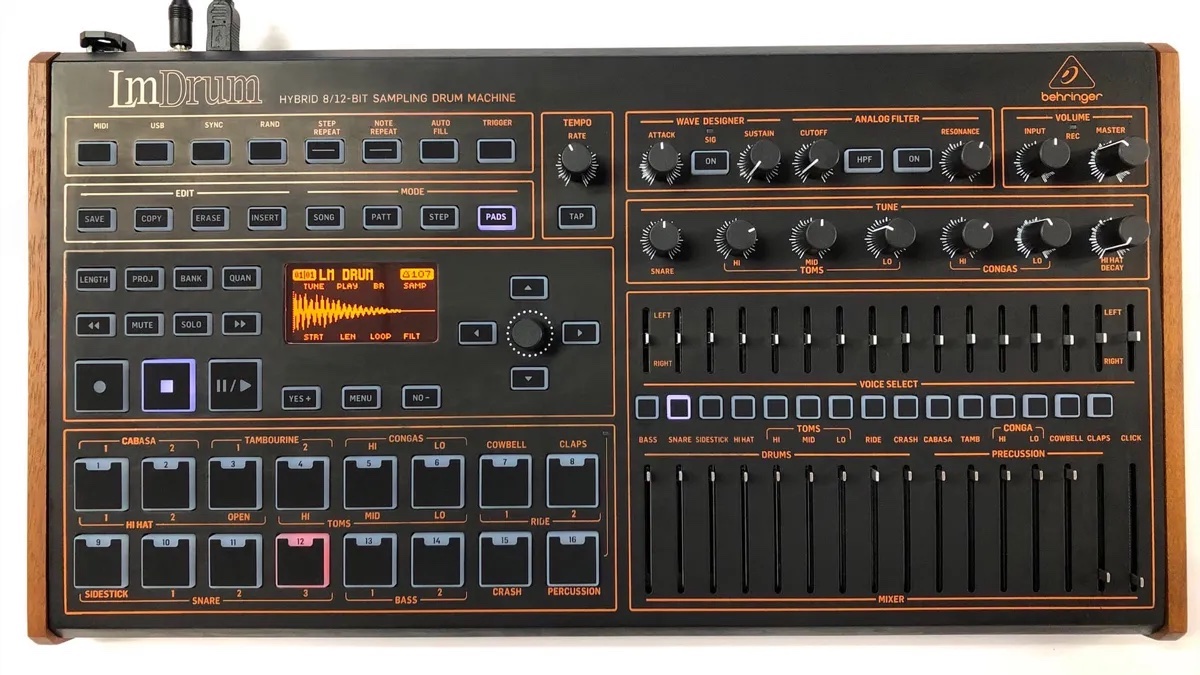
Last month, German gear manufacturer Behringer announced the release of LM Drum, an unauthorized sort-of-remake of the LinnDrum, the iconic drum machine designed by Roger Linn of Linn Electronics and released in 1982.
A landmark product in the history of music technology, LinnDrum was the successor to the Linn LM-1, itself the first drum machine to use samples of real drums and the first to quantize the user's playing. Both the LM-1 and LinnDrum became hugely popular with musicians throughout the '80s, featuring in songs from Michael Jackson, Prince, Gary Numan and many more.
Though it incorporates a number of additional features, such as sample recording and MIDI support, Behringer's $399 LM Drum is essentially a clone of the LinnDrum, closely imitating its visual design and featuring the same sounds used on the original instrument. In a statement shared to his website, LinnDrum creator Roger Linn has revealed that Behringer didn't seek his permission before developing its clone of his classic drum machine.
Calling into question the ethics of Behringer's business practices, Linn says that the company's CEO Uli Behringer didn't seek his blessing before copying LinnDrum's visual design or using its original drum sounds. "Even if we discount the copying of the visual design, logo style and sound circuit of LinnDrum," he says, "the LmDrum copies my sounds. So I'd have preferred for Uli to ask my permission. Even if he thinks it is legal, I question whether it is ethical."
While Linn evidently disapproves of Behringer's LM Drum, he admits that it's "not unusual" for companies to borrow ideas from legacy products, noting that it's something he has done in the past. Linn also concedes that the original LinnDrum samples are "all over the web", an issue that he's largely ignored due to a distaste for legal disputes.
"The value in those old sounds is probably due more to Art Wood, the drummer who played the sounds, and my friend of many years," Linn says, "and to artists like Prince, Michael Jackson, and others, who made those sounds famous on their hits."
Though Behringer didn't seek Linn's approval in the development of LM Drum, Linn notes that the company reached out to him in 2020 to "collaborate on a future drum machine", an offer which he "respectfully declined" due to concerns over Behringer's "past business ethics and legal practices".
Linn goes on to reveal that Behringer gifted him an LM Drum in August 2024 and even offers his opinion on the instrument, describing it as a "bit of a head-scratcher". "It is clearly intended to evoke my 1982 LinnDrum drum machine, borrowing its visual style, control layout, colors and logo style, as well as copying its sounds and those of my LM-1 and Linn9000 drum machines," he says.

Behringer releases LM Drum, a $399 LinnDrum clone that it's calling "the rebirth of a legend"
"I took it apart and it even copies much of my LinnDrum sound generation circuit, even my bad ideas like the inability to tune any drums except the snare, toms and congas. However, it uses an entirely different operating system and user interface, one that is based on earlier Behringer drum machines. Personally, I found it somewhat confusing and difficult to use, though I was given an unfinished manual."
In his statement, Linn also references the release of IconDrum, a recently released drum machine plugin from GForce Software that's also based on LinnDrum. "Like the LmDrum, it copies the LinnDrum's visual design, logo style, and drum sounds, but has no sequencing," Linn says.
"Like Behringer, GForce did not ask my permission to use my sounds, but did offer to pay me an insignificant royalty to use the 'LinnDrum' name, which I declined because I thought it was misleading to call a product 'LinnDrum' that wasn't a drum machine but rather only played my copied drum sounds. They went ahead and released it."
Linn concludes his statement by questioning why music-makers remain so nostalgically obsessed with vintage gear and classic instruments in an age where modern music tech is far more powerful than it ever has been. "What's the big deal about nostalgia?" he asks.
"I can understand that some people value analog synthesis, though I find the many types of innovative software synthesis created in recent decades to be far more capable, versatile and interesting. But even if people value vintage analog synths, why vintage digital drum machines? I ask this because an old bit is no different than a new bit."







